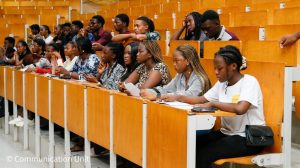Nigerian Student Loan Scheme Faces Criticism from Academic Union
ABUJA, Nigeria – The Academic Staff Union of Universities (ASUU) has voiced strong reservations about the recently launched Nigerian student loan scheme. They label it as “unreliable” and “untested.” This criticism comes as the government promotes the program to expand access to higher education for indigent students.
Loan Disbursement and ASUU’s Concerns
The student loan initiative began in May 2025. It has already disbursed over ₦110 billion to students across 281 public tertiary institutions. However, ASUU argues that the scheme may create more problems than it solves. They cite current economic conditions in the country as a major concern.
Prof. Emmanuel Osodeke, President of ASUU, expressed skepticism about the new scheme. “ASUU will never support the issue of education banks because the poor will not benefit from it,” he stated. The union believes adequate funding, not loans, is the best solution for Nigerian universities.
The Student Loan Act and Its Implementation
President Bola Tinubu signed the Students Loan Act in June 2023. It established the Nigerian Education Loan Fund (NELF) to provide interest-free loans to indigent Nigerian students. Eligible applicants can receive up to ₦500,000 (about $650) per academic session.
The scheme’s implementation faced delays. Initially set for September 2023, it was postponed multiple times before launching in May 2025. Critics, including ASUU, accuse the government of using the scheme to introduce tuition fees in public institutions.
Government Confidence and Opposition Concerns
Despite concerns, the government remains confident in the program’s potential. Dele Alake, the president’s spokesperson, stated, “The student loan scheme is a boon to our youths, to our students nationwide.” The government argues it will enable indigent students to access higher education and repay loans interest-free over 20 years.
ASUU’s concerns stem from several factors. They point to Nigeria’s high graduate unemployment rate, projected to increase to 40.6% in 2023. This raises questions about loan repayment feasibility for graduates entering a challenging job market.
Financial Pressures on Universities
The debate unfolds amid increasing financial pressure on Nigerian universities. In 2024, many institutions hiked their fees, some tripling previous rates. This sparked student protests. The University of Ibadan increased fees from ₦20,000-₦30,000 to about ₦200,000-₦400,000.
Adding to these woes, many institutions experienced prolonged power outages in 2025 due to unpaid electricity bills. This highlights ongoing funding challenges in the sector.
Mixed Reactions and Future Outlook
The National Association of Nigerian Students (NANS) has welcomed the loan scheme. They see it as a potential solution to high dropout rates and a deterrent to student vices. However, ASUU’s stance underscores the complex challenges facing Nigeria’s higher education system.
As the program rolls out, its long-term impact remains uncertain. The ongoing debate highlights the need for comprehensive solutions to address Nigeria’s education sector challenges.


